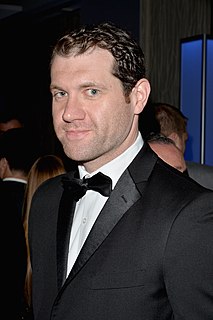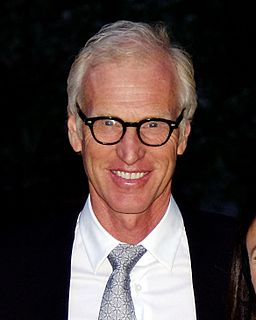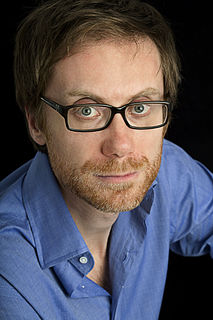A Quote by Kenneth Koch
I wonder if I ever thought of an ideal reader... I guess when I was in my 20s and in New York and maybe even in my early 30s, I would write for my wife Janice... mainly for my poet friends and my wife, who was very smart about poetry.
Related Quotes
Another trouble with poetry - and I'm gonna stop the list at two - is the presence of presumptuousness in poetry, the sense you get in a poem that the poet takes for granted an interest on the reader's part in the poet's autobiographical life, in the poet's memories, problems, difficulties and even minor perceptions.
There was a time in my late teens and early 20s where I was motivated by this wanting to get out, to prove to the world that I had something to offer - that kind of youthful spirit, where maybe I had my eye on fame and fortune. I mellowed out in my late 20s and now that I'm in my early 30s, I'm coming to peace with it.
Unfortunately, everyone thought that Teri Hatcher was my wife. Matter of fact, I would be with my wife, holding my wife's hand at a football game, and someone would come up to me and say, 'Hey, I love those commercials you do with your wife.' My kids almost had shirts made up that said, 'Teri Hatcher is not my mom.'
I loved it. I just thought I wanted to stay in college forever. I came to New York all by myself; I didn't have any friends there. But it was fine. I felt comfortable. I started thinking, 'Maybe graduate school?' I was really cool with people who were smart, who knew stuff. It's very romantic and stimulating.
I don't know that Brandy [Burre] would ever categorize herself as being trapped, but I felt like I saw her being trapped. When she's cleaning the room and she puts the labels on the toys, that was something that my wife, who's also friends with Brandy, was very adamant that we try to capture. My wife said that showed to her Brandy's creative outlet because she can't be creative in the ways that she used to be or that she maybe wants to be in the future.
The reason I keep talking about a wife and saying the word 'wife' on stage is because it seems a funny word to me. The more you say it, the more it seems to detach from that person and become this sort of abstract thing: that you would set out to find a wife, that it would be an objective like buying a new car.
The reason I keep talking about a wife and saying the word wife on stage is because it seems a funny word to me. The more you say it, the more it seems to detach from that person and become this sort of abstract thing: that you would set out to find a wife, that it would be an objective like buying a new car.
The one that sticks out in my mind and has all along was the New York Times piece on Melania Trump.Calling her a mannequin and a trophy wife, which if anybody had ever said that about any - Michelle Obama was a lawyer. But Melania Trump has been a successful businesswoman. She speaks several languages. A mannequin and a trophy wife and it was just - fine, they were allowed to say that about her.






































